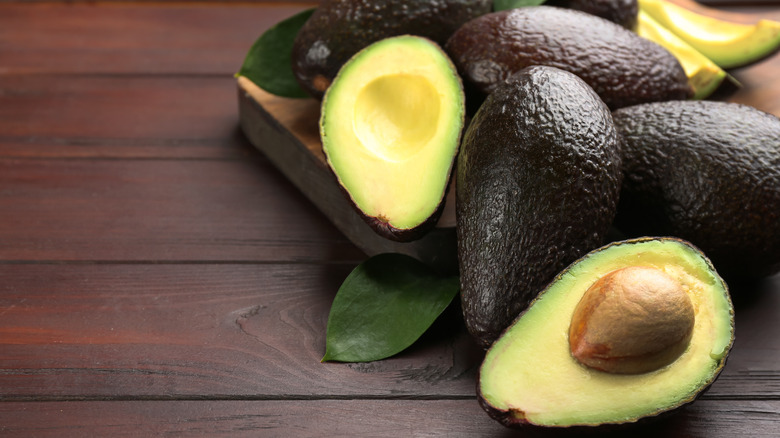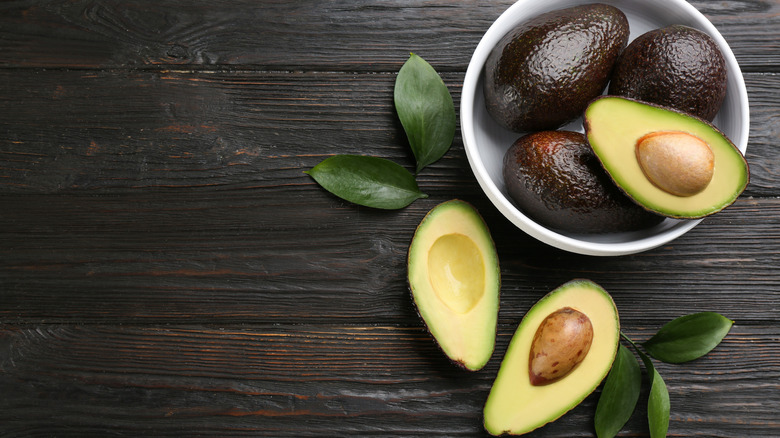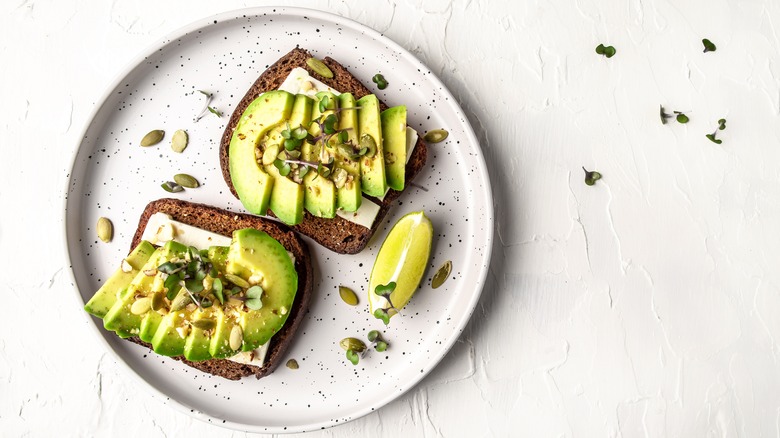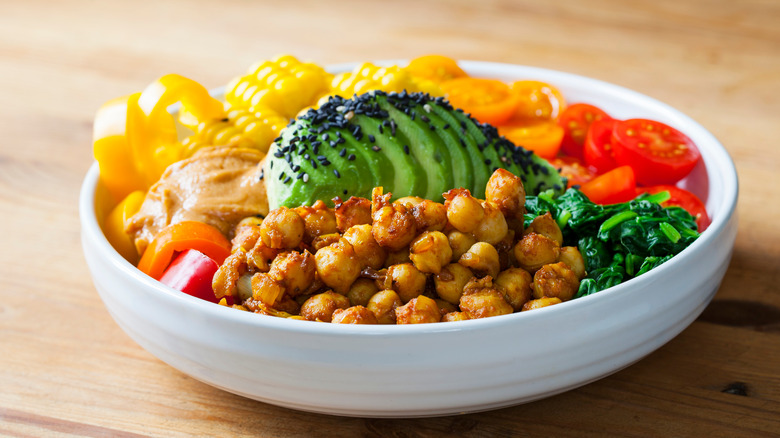New Research May Have You Eating Avocado Every Day
Avocados are being consumed more often than ever before: They're piling them atop avocado toast, stirring them into egg salad, and even folding them into sweet matcha avocado cheesecake. In 1985, America's annual consumption of avocados hit a figure of 436.6 million pounds. In 2021, over three decades later, that number increased by almost 600 percent, hitting a staggering 3,022 million pounds of avocados (via Statista). Holy guacamole!
If you're among the mighty avocado's legions of fans, then you likely enjoy the savory fruit for more than just its taste, digging into that bowl of guac for the positive way it impacts your health, too. In addition to being packed with antioxidants (via WebMD), a recent study from the American Heart Association showed that big-time avocado eaters have healthier hearts, with coronary heart disease and cardiovascular disease both appearing much less frequently than people who didn't eat as much avocado. And if those health benefits aren't enough to have you reaching for the creamy fruit, new research shows that consuming it can lower your cholesterol, too.
What is bad cholesterol?
Do you know the difference between HDL and LDL cholesterol? According to Keck Medicine, high-density lipoprotein (HDL) cholesterol is "good" cholesterol, because HDL transports cholesterol to the liver, where it can be removed from the bloodstream before building up in arteries and potentially causing heart disease (via Cleveland Clinic). Low-density lipoprotein (LDL), on the other hand, is considered "bad" cholesterol, taking cholesterol to your arteries where it can accumulate.
If keeping your arteries and blood circulation free and clear is something that sounds like a good idea to you, then you'll want to eat foods that have been shown to help lower LDL cholesterol, such as beans, whole grains, and nuts (via Harvard Health Publishing). And you can add avocados to that list, too.
An avocado a day can lower LDL cholesterol
According to a study published earlier this week by the Journal of the American Heart Association, researchers from Pennsylvania State University asked half of the study's cohort of more than 1,000 to eat one avocado a day, while the other half was asked to keep their diet the same. After six months, those in the avocado group showed an average reduction of 2.5 milligrams/deciliter of LDL cholesterol in their blood (via ZME Science).
"Avocados can be a beneficial addition to a well-balanced diet," said Penny Kris-Etherton, an author of the study, in a statement. "Incorporating an avocado per day in this study did not cause weight gain and also caused a slight decrease in LDL cholesterol."
Other upsides to avocado consumption
And potentially lower cholesterol isn't the only benefit when it comes to eating avocados, according to CNN.
The fruits are packed with potassium, which is a mineral that can help your body get rid of excess sodium. Per Harvard Health, too much sodium can lead to a whole host of health issues like heart disease and high blood pressure, and even increase your risk of stroke.
If you're concerned about weight loss or need something that will help you stay energized, avocados also contain a lot of fiber. This means any dishes featuring the ingredient (like a hearty grain bowl or potentially vegan fettuccini Alfredo) can keep you fuller longer.
Avocados are also a good source of folate, which the Mayo Clinic reports is a B vitamin that can impact cell growth. While most adults don't have issues getting enough folate from their regular diet (the vitamin can be found in leafy greens, citrus fruits, melons, beans, and other places) it is important for pregnant people to monitor, as folate can prevent birth defects.



